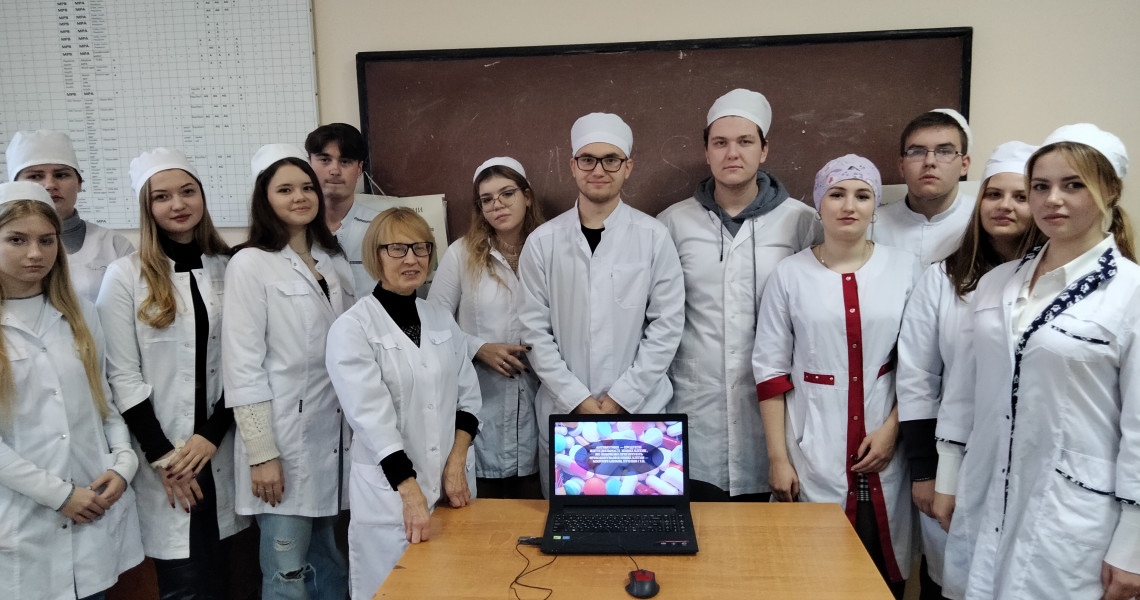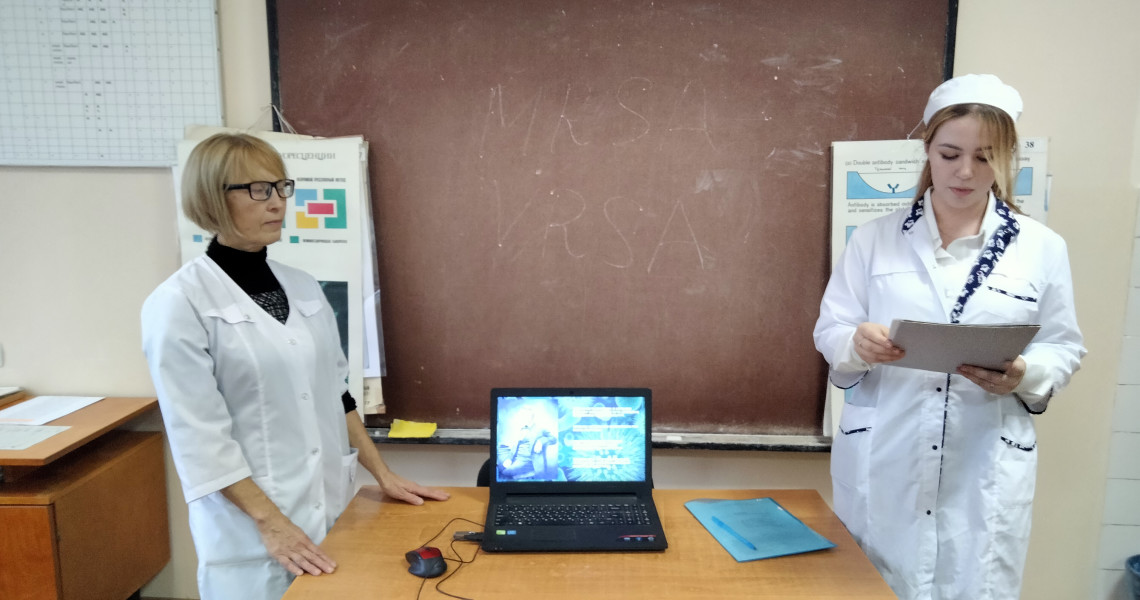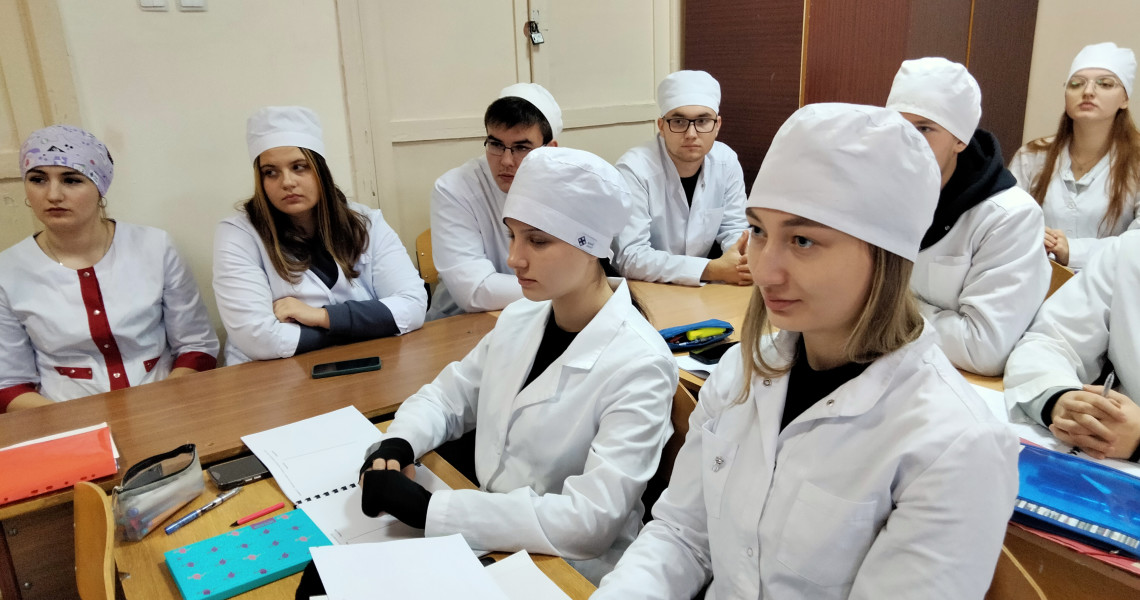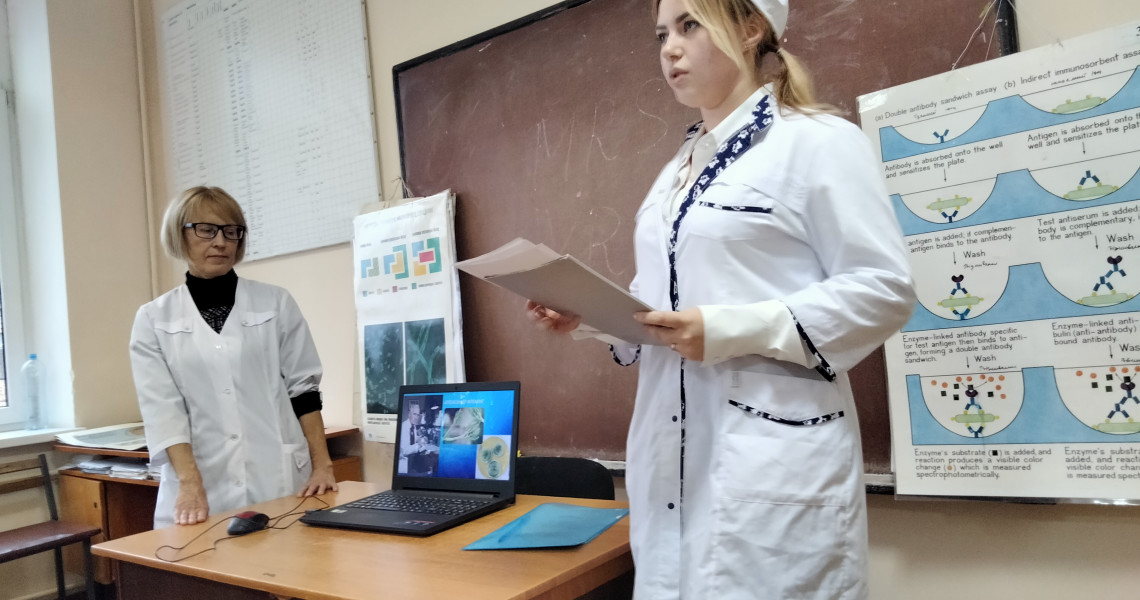Нежить? Голова болить і м`язи викручує? Мерщій шукати бодай якийсь антибіотик! Не помилимось, коли скажемо, що так часто робить багато хто із пересічних громадян, які раптово занедужали. Між тим, не завжди замислюючись над тим, що безконтрольний прийом антибіотиків суттєво може нашкодити здоров`ю. Присвячений цій темі 18-24 листопада розпочнеться Всесвітній тиждень обізнаності про стійкість до антибіотиків.
Він відзначається щороку у другий декаді листопада і його метою є підвищення поінформованості громадськості в усьому світі про проблему стійкості до протимікробних препаратів, щоб не допустити її подальшого розвитку та поширення. Центр громадського здоров'я МОЗ України привертає увагу населення, що Всесвітня боротьба з антибіотикорезистентністю проводиться під егідою Всесвітньої організації охорони здоров’я (https://phc.org.ua/news/vsesvitniy-tizhden-pravilnogo-vikoristannya-antibiotikiv-scho-nayvazhlivishe-varto-znati-pro). У зв’язку з цим на кафедрі мікробіології, вірусології та імунології ПДМУ почалося проведення заходів, приурочених до цих актуальних подій. Під керівництвом доцента кафедри кандидата біологічних наук Ганчо О. В. студентка 3 групи 2 курсу Алієва Анастасія медичного факультету № 1 підготувала презентацію і виступила з нею перед студентами своєї групи та здобувачами вищої освіти 13 групи 2 курсу стоматологічного факультету, які наразі вивчають дисципліну «Мікробіологія, вірусологія та імунологія». Доповідачка проінформувала, що починаючи з 2015 року за ініціативи ВООЗ щорічно в листопаді проводиться Всесвітній тиждень обізнаності про стійкість до антибіотиків, спрямований на те, щоб нагадати людям про важливість правильного використання антибіотиків і розповісти про можливі наслідки. Повідомлення містило інформацію про принципи раціональної антибіотикотерапії, особливості правильного застосування антибіотиків, механізми антибіотикорезистентності та основні методи визначення чутливості мікроорганізмів до антибіотиків. Доповідь зацікавила слухачів, вони задавали актуальні питання та обговорювали сучасні проблеми антибіотикорезистентності, висвітлені у презентації.
World Antibiotic Resistance Awareness Week: What to Expect?
Feeling unwell? Headache and muscle pain bothering you? Hurry to find some antibiotic! It's safe to say that many ordinary citizens often act this way when suddenly falling ill. However, not everyone realizes that uncontrolled antibiotic intake can significantly harm one's health. Dedicated to this topic, the World Antibiotic Resistance Awareness Week will take place from November 18 to 24.
Held annually in the second decade of November, its purpose is to raise public awareness worldwide about the issue of resistance to antimicrobial agents, aiming to prevent its further development and spread. The Public Health Center of the Ministry of Health of Ukraine draws attention to the fact that the global fight against antibiotic resistance is carried out under the auspices of the World Health Organization (https://phc.org.ua/news/vsesvitniy-tizhden-pravilnogo-vikoristannya-antibiotikiv-scho-nayvazhlivishe-varto-znati-pro ).
In connection with this, events related to these relevant issues have begun at the Department of Microbiology, Virology and Immunology of PSMU. Under the guidance of Associate Professor Hancho O. V., Ph.D. in Biological Sciences, the second-year student of the Group 3, Medical Faculty No. 1, Anastasiia Aliieva, prepared a presentation and delivered it to her groupmates and the second-year students of Group 13, Faculty of Dentistry, who are currently studying the discipline "Microbiology, Virology, and Immunology."
The presenter informed the audience that, starting from 2015, the World Antibiotic Resistance Awareness Week has been held annually in November, initiated by the WHO. Its aim is to remind people of the importance of the correct use of antibiotics and to inform about possible consequences. The presentation included information on the principles of rational antibiotic therapy, features of the correct use of antibiotics, mechanisms of antibiotic resistance and basic methods of determining the sensitivity of microorganisms to antibiotics. The presentation captured the interest of the audience, who asked relevant questions and discussed modern problems of antibiotic resistance highlighted in the presentation.









